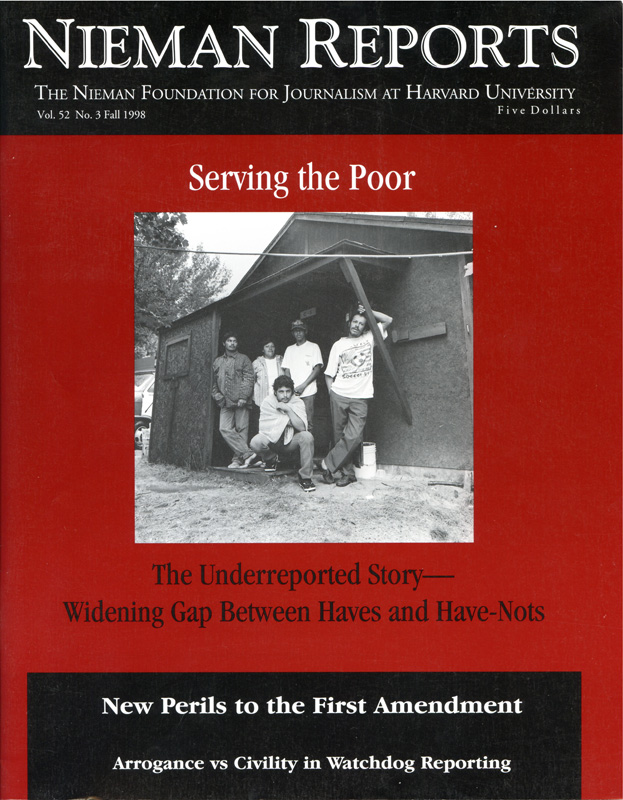RELATED ARTICLE
"SLAPPing Down the Debate Over Cuba"
- John S. Nichols and Robert D. RichardsThe idea that knowledge can come to you only through a sort of pictorial electronic representation itself is corrosive. What we’re steadily doing in this culture is eating up the moment of reflection and deliberation. The whole idea of taking in a word, taking in a sentence in a paragraph, in an image, is that some set of data goes into your mind and you reflect on it, you think about that. In your head you begin to absorb it, see it through different angles, and reckon whether or not it is true. Move forward to the O.J. Simpson trial, that year in our lives as Americans’ reflection eroded…. I looked at the polls from the day of the murder and from the day after [the verdict] and people were equally divided. The same people thought the same thing....Those people had almost absorbed nothing from one year of watching these images on trial…. The Gulf War was another one of those episodes. You had lots of flash and glory and photographs that told you absolutely nothing....What you saw, basically in the sky, was just lights. You need that moment of reflection. You gather information, you put it together, you test it, you exact hypotheses on it and you reflect about it. We’re wiping out that entire step in this culture. Wiping it right out. And I’m talking about world culture.
Brent Staples, Editorial writer, The New York Times, at a Nieman Fellows seminar February 13, 1998.
"SLAPPing Down the Debate Over Cuba"
- John S. Nichols and Robert D. RichardsThe idea that knowledge can come to you only through a sort of pictorial electronic representation itself is corrosive. What we’re steadily doing in this culture is eating up the moment of reflection and deliberation. The whole idea of taking in a word, taking in a sentence in a paragraph, in an image, is that some set of data goes into your mind and you reflect on it, you think about that. In your head you begin to absorb it, see it through different angles, and reckon whether or not it is true. Move forward to the O.J. Simpson trial, that year in our lives as Americans’ reflection eroded…. I looked at the polls from the day of the murder and from the day after [the verdict] and people were equally divided. The same people thought the same thing....Those people had almost absorbed nothing from one year of watching these images on trial…. The Gulf War was another one of those episodes. You had lots of flash and glory and photographs that told you absolutely nothing....What you saw, basically in the sky, was just lights. You need that moment of reflection. You gather information, you put it together, you test it, you exact hypotheses on it and you reflect about it. We’re wiping out that entire step in this culture. Wiping it right out. And I’m talking about world culture.
Brent Staples, Editorial writer, The New York Times, at a Nieman Fellows seminar February 13, 1998.



